Citizens of the Anthropocene
A two-week studio exploring four philosophical viewpoints towards the Anthropocene and what it means for our urban surroundings, taking place from 14 - 25 March 2022
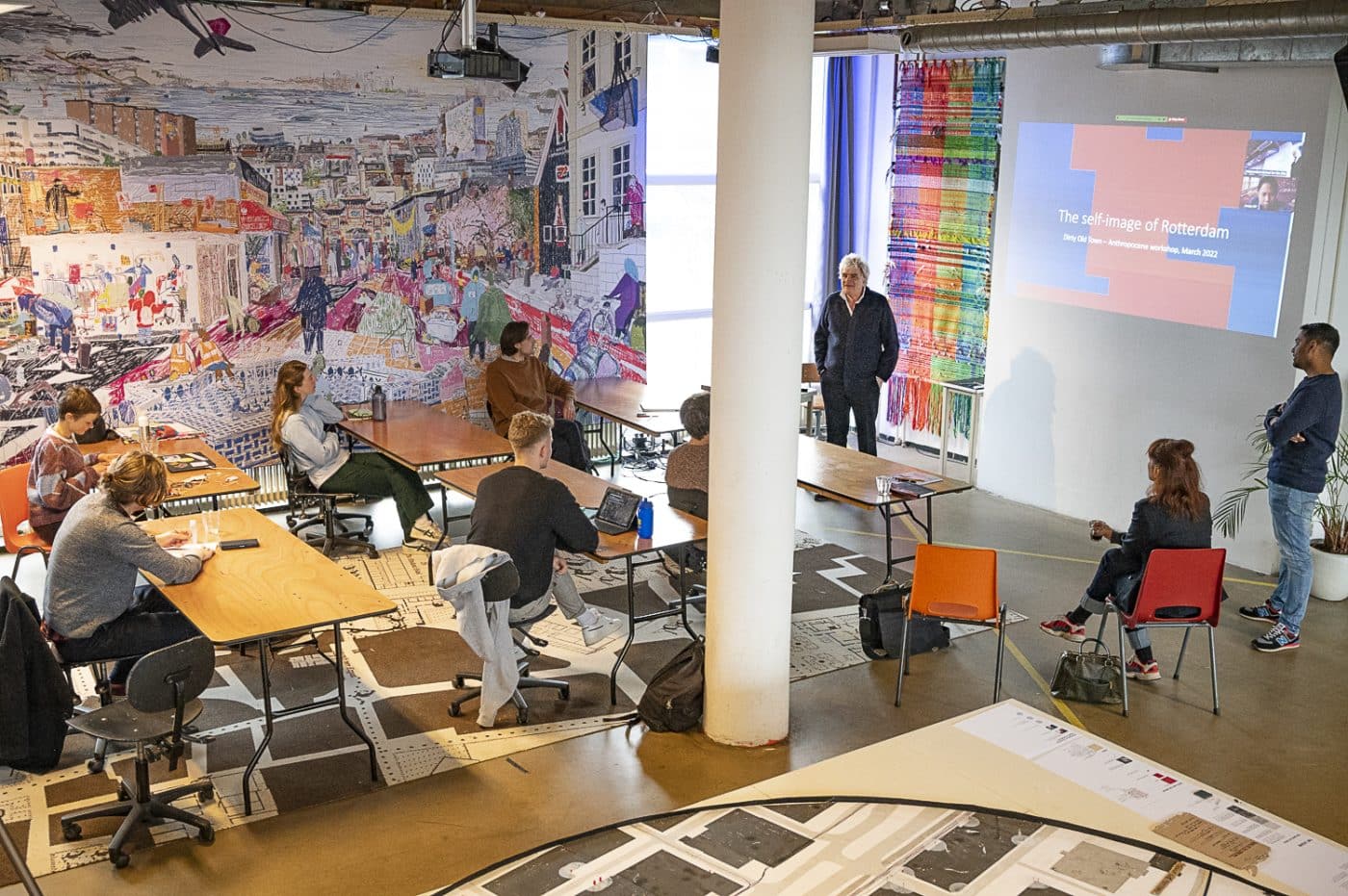
Cities all around the world, have the ambition to become green, sustainable and resilient. We see projects being developed to transform car-dominated cities into attractive and green environments for all their inhabitants, new forms of energy production are developed to power our houses and industries, and various measures are taken to deal with sea-level rise. But is it enough?
Citizens of the Anthropocene is an intensive two week studio by the Independent School for the City together with two of Holland’s most original thinkers and makers: the exhibition designer Herman Kossmann and the ecologist and landscape architect Dirk Sijmons. We have mapped out an expedition to discover the ultimate consequences of our attitude to the Anthropocene – the geological era marking the dominant human impact on the Earth systems. Through four philosophical viewpoints that one can have of this age of mankind, and while confronting the causes and effects of climate change, biodiversity loss, land-use change et cetera, we will try to bring the effects of our actions close to home, literally and painfully. We’ll use our collective knowledge and imagination to improve, layer and enrich our worldview, to understand our own cities and countries and to develop our own position vis a vis the new normal of the why and how we as humans need or want to act.
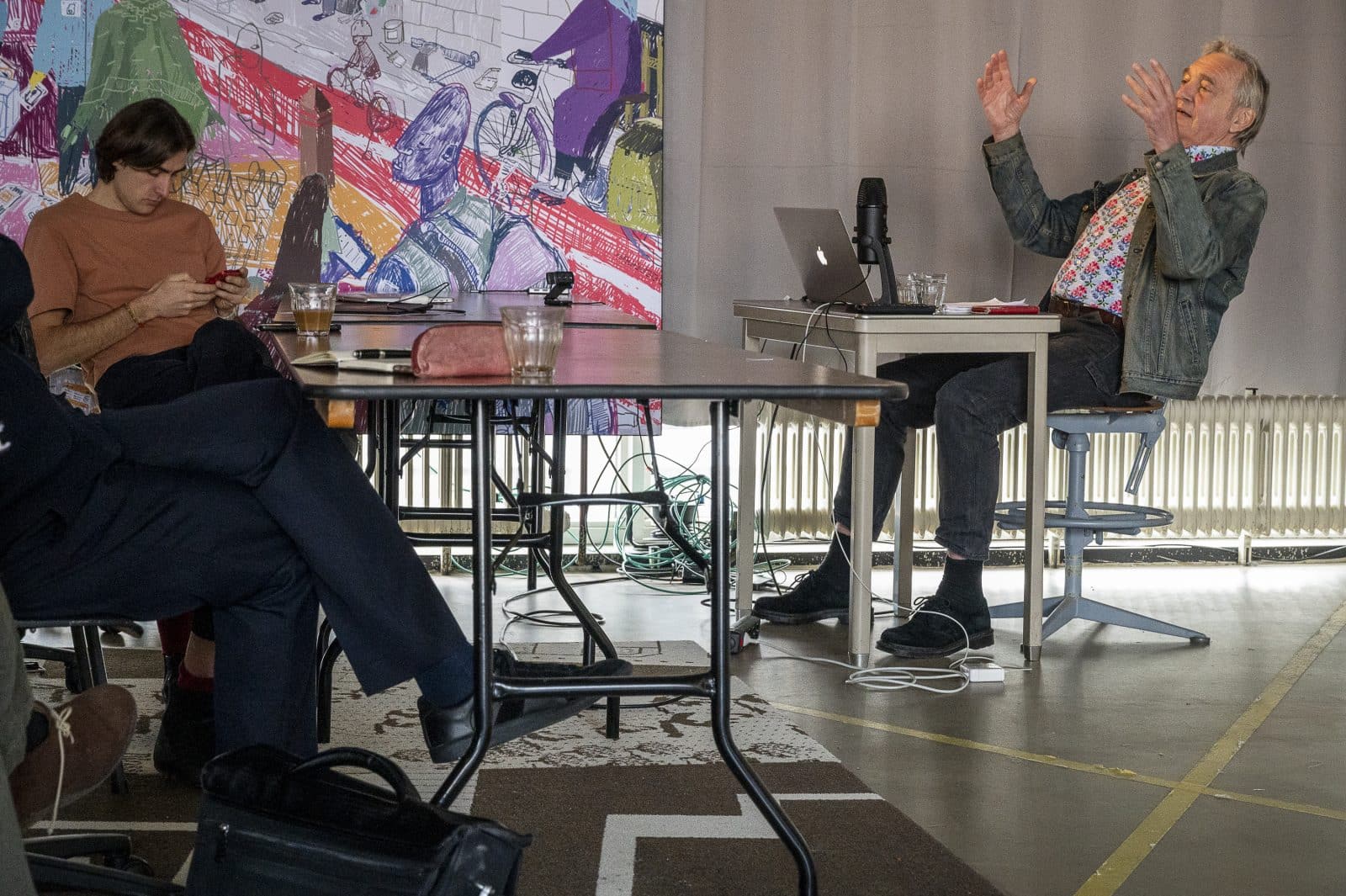
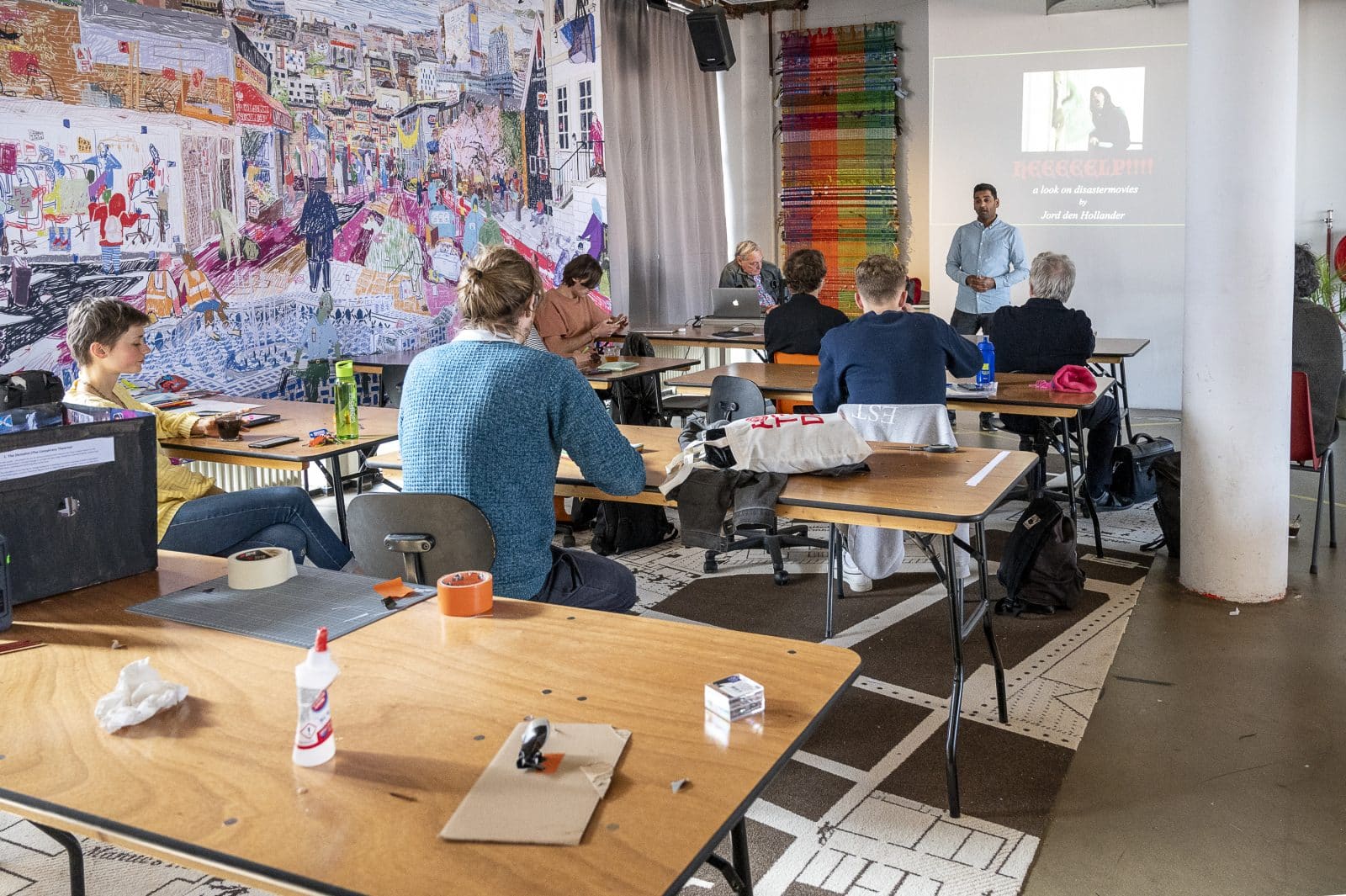
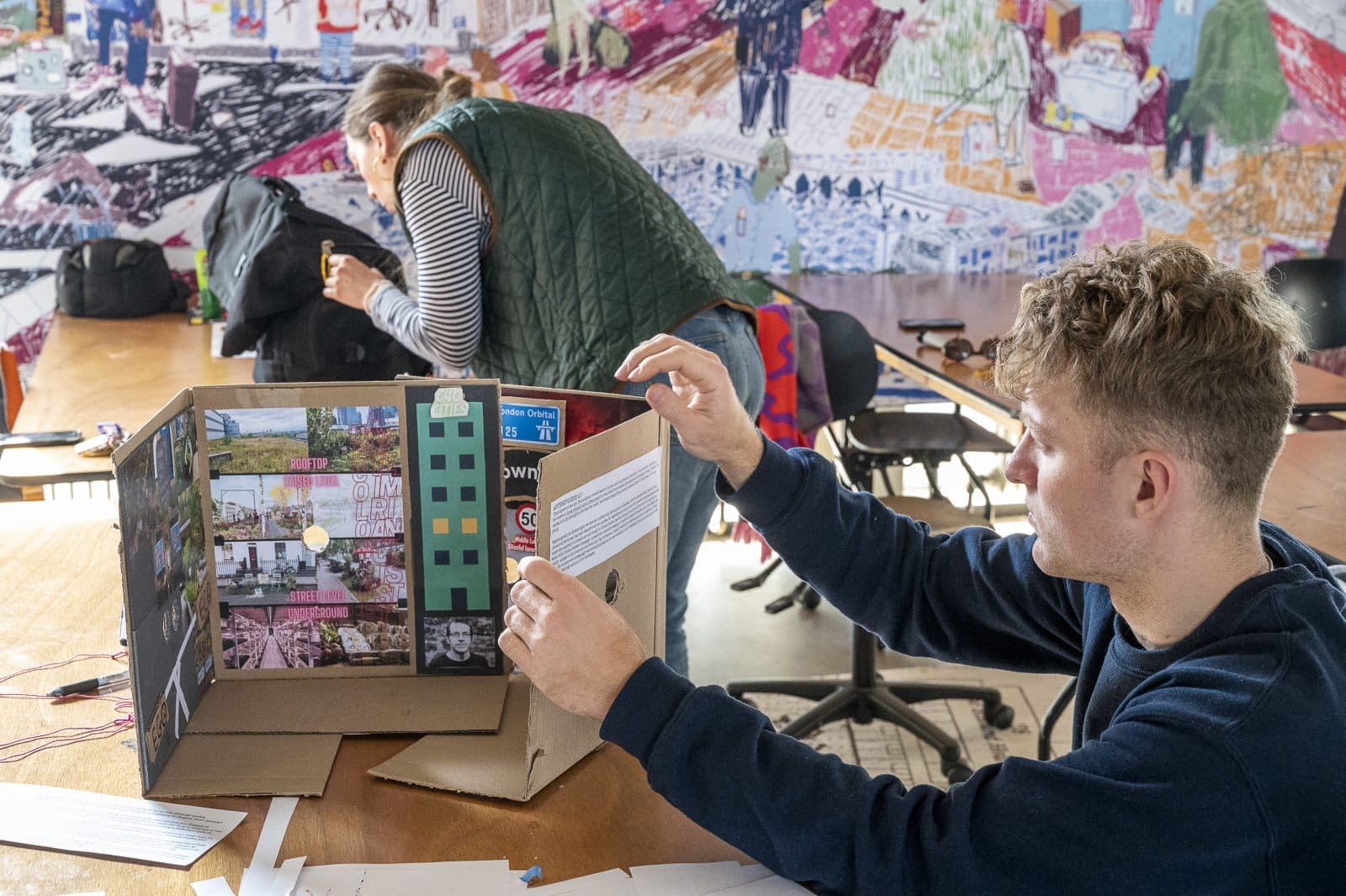
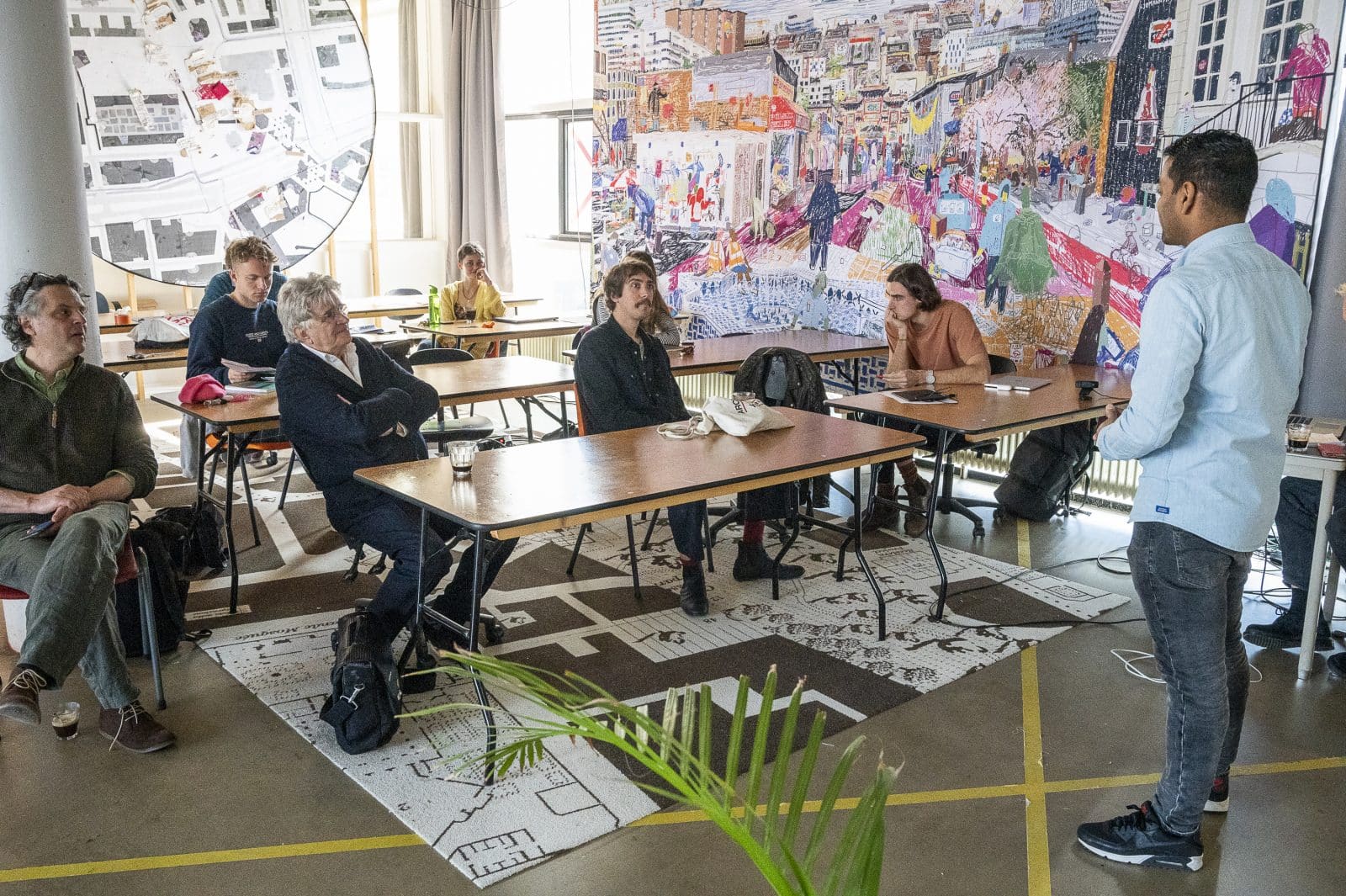
Course Structure
This two-week studio is all about visualizing and representing alternative ways out of our wicked environmental problems. Not for the sake of complexity but to produce material for visual learning. The Independent School for the City has a school building, teachers, and recently even a staff room but lacks teaching material about the Anthropocene. And that is exactly what we are going produce in these two weeks. The motto is Docendo discimus that could be translated as ‘by teaching we learn’. If you produce visual learning material, you must deeply immerse yourself in the content matter and will learn in doing so.
What do we mean by teaching material to be produced? Could be the old fashioned – but never surpassed - school poster, that tries to catch a situation in one frame but has enough – sometimes hidden – details to let the learners discover new elements time after time. In Holland we had school posters with wide ranging subjects, from the Romans to hibernating on Nova Zembla, from a 17th century Sea battle to an arcadic ‘In and around the Farm’). It comes to life with the educational narrative the teachers tell. In this course, you will be the teacher and tell(!).
The course will start with producing a four-sided peeping box where four ways of seeing, four ways of understanding, four ways of acting towards this new geologic Age of Mankind are represented. That sounds rather complex but be reassured: we already made an example using the observations and material form the two earlier Citizens of the Anthropocene courses we ran in 2019 & 2020. Your commission will be to produce a peeping box that will represent the way of seeing in your home county, your culture or finetuned to you personally.
There are two more heavy themes that we will ask you to represent in School Posters new style. Ways to revive and renew our Democracy that doesn’t seem to be able to cope with the environmental cluster crisis, to cope with the new Anthropocene reality. Different ideas to do so came up the last decade will be introduced and fed into the course. We don’t ask you to do the impossible but to represent the different ways in an evocative way. For the daring of you, you can add a new alternative vision of course.
The same holds for the second heavy theme: reforming our economy. We are in the maelstrom of self-devouring growth and wonder if there is a way out. Are there alternative economic models? There is the famous maxim of Slavoj Zizek that ‘most people can image the end of the world easier than the end of capitalism’. What makes clear how complex this problem is.
The last day of the course is devoted to lessons learned and discussing ‘action perspectives’ at large or focussing on the professional attitude(s) of the design community.
Tutors
Dirk Sijmons
Dirk Sijmons studied Architecture at Delft University of Technology and is one of the three founders of H+N+S Landscape Architects. He was appointed Dutch Government Advisor on Landscape by the Minister of Agriculture, Nature Management and Fisheries in 2004, was professor of Environmental Design at Delft University of Technology from 2008 until 2015 and has been curator of the Rotterdam Architecture Biennale 2014 themed Urban-by-Nature. Sijmons has published extensively concerning phenomenons in the European landscape, with a strong focus on environmental design and the spatial impact of the energy transition. Sijmons received the Rotterdam-Maaskant Prize in 2002 and the prestigious Edgar Doncker award in 2007 for his contribution to Dutch culture.
Herman Kossmann
Herman Kossmann graduated as an architect from Delft University of Technology. He began his career as a teacher at the Royal Academy of Art in The Hague and carried out a number of mayor renovation projects in Rotterdam as an independent architect. In the beginning of the 90’ he was asked to design and manage some large exhibitions, which became a new direction in his work. In 1998 he set up an interdisciplinary design office, based in Amsterdam with fellow student Mark de Jong: Kossmann.dejong. The office became an international operating design studio specialised in exhibition design and interior architecture.
Course Schedule
Monday 14 March 2022
10:00 – 10:30 General introduction on the set-up of the workshop by Mike Emmerik
10:30 – 11:15 Where are we now - The self-image of Rotterdam by Michelle Provoost.
11:30 – 12:30 Lecture: Mobilis in Mobile - an introduction to the Anthropocene by Dirk Sijmons
12:30 – 13:30 Lunch Break
13:30 – 14:30 Conversation on four worldviews to the Anthropocene
14:30 – 15:00 Explanation of the first assignment by Herman Kossmann: Making a box based on your home country/city
15:00 – 17:30 Participants work on assignment
Tuesday 15 March 2022
10:00 – 12:30 Participants work on assignment
12:30 – 13.30 Lunch break
13:30 – 15:00 Participants work on assignment
15:00 – 17:30 Conversation about research findings so far
Wednesday 16 March 2022
10:00 – 10:30 Briefing on the day’s activity
10:30 – 11:30 Participants prepare for the debate
11:30 – 12:30 A quadraphonic debate on the Anthropocene Part #1
12:30 – 13.30 Lunch break
13:30 – 14:30 Participants work on assignment
14:30 – 15:00 Short Reflection on the progress
15:00 – 17:30 Participants work on assignment
Thursday 17 March 2022
10:00 – 12:30 Participants work on assignment
12:30 – 13:30 Lunch break
13:30 – 15:00 Participants present their work
15:00 – 17:30 A quadraphonic debate on the Anthropocene Part #2
- Start of part 2: Life in an uncertain world -
Friday 18 March 2022
10:00 – 10:30 Introduction to: Economy in an uncertain world
10:30 – 12:00 A film compilation on the economic models
12:00 – 12:30 Talk about the assignment
12:30 – 13:30 Lunch break
14:30 – 16:00 Participants work on assignment
16:00 – 17:00 Conversation on first ideas: Economy in an uncertain world
Monday 21 March 2022
10:00 – 12:30 Participants work on assignment
12:30 – 13.30 Lunch break
13:30 – 15:00 Participants work on assignment
15:30 – 17:30 Presentation of Presentation
Tuesday 22 March 2022
10:00 – 12:30 Participants work on assignment
12:30 – 13.30 Lunch break
13:30 – 17:30 Participants work on assignment
Wednesday 23 March 2022
10:00 – 12:30 Participants work on assignment
12:30 – 13.30 Lunch break
13:30 – 15:30 Conversation
15:30 – 17:30 Participants work on assignment
Thursday 24 March 2022
10:00 – 12:30 Participants work on assignment
12:30 – 13.30 Lunch break
13:30 – 16:00 Presentation of final output.
16:00 – 17:30 conversation
Friday 25 March 2022
10:00 – 11:30 The apocalypse in film with Jord den Hollander
11:30 – 12.30 Lecture and conversation on Apocalypsophy with philosopher Lisa Doeland
12:30 – 13:30 Lunch break
13:30 – 14:30 Final presentations of teaching material
